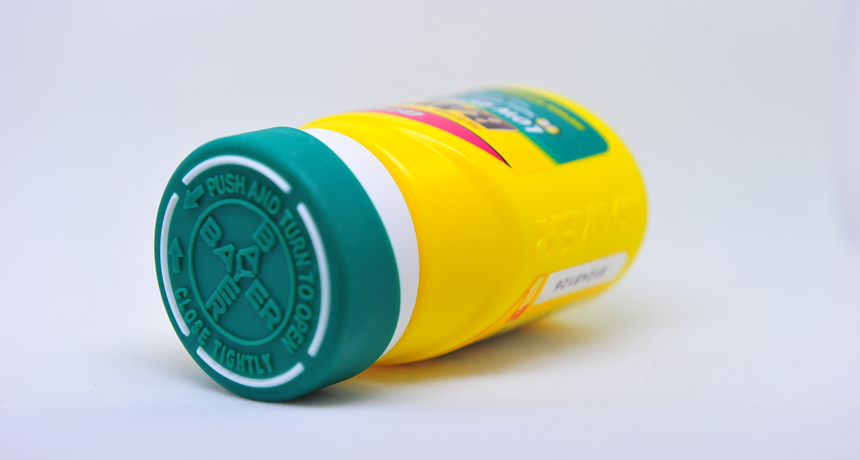Aspirin’s heart benefits not a slam dunk
No survival gain found in people age 60 and over who took daily dose

GOOD AND BAD In older people with risk factors for heart disease, aspirin prevented some nonfatal heart attacks but didn’t affect survival rates in a five-year study.
SimonQ/Flickr (CC BY-NC-ND 2.0)







